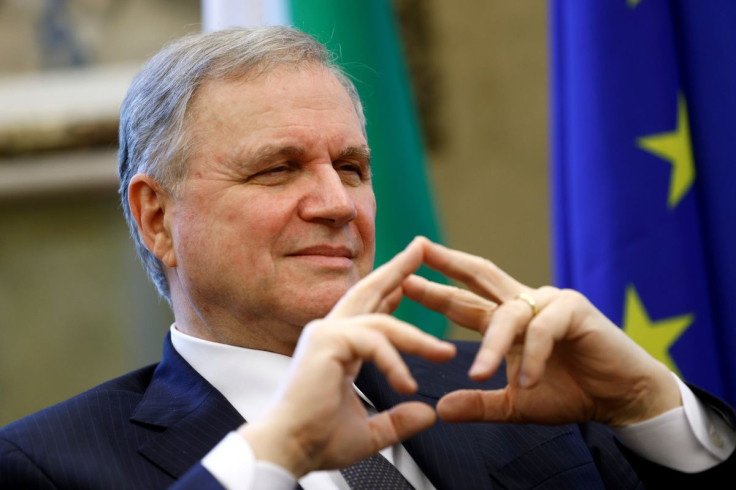ECB's Visco Says Flexible Approach Needed In Unwinding Stimulus

The European Central Bank (ECB) will keep a flexible approach as it unwinds its ultra-expansionary monetary policy, monitoring not only inflation threats but also risks of uneven financing conditions across euro zone countries, a top policymaker said.
ECB Governing Council member Ignazio Visco told a conference that the impact of the energy price shock should gradually wane in 2023, provided inflation expectations remain anchored and in the absence of a wage-price spiral.
Visco, also Bank of Italy governor, said inflation pressures had turned out to be more prolonged than initially envisaged and, in the short term, risks of higher consumer prices had increased. But so had risks of slower economic activity.
"The council's March meeting must carefully examine and discuss these developments and their possible consequences," he said at the annual ASSIOM-FOREX conference on Saturday.
The ECB will update, and likely increase, its inflation forecasts in March, when its council is also expected to change its December guidance that it would buy bonds at least until October and only raise rates after those purchases end.
Sources told Reuters after the ECB's Feb. 3 meeting some council members already wanted policy changes this month.
"The debate among ECB members over inflation has already started, it is a good debate," Visco said.
Following the meeting, ECB President Christine Lagarde refused to rule out a rate increase in 2022, walking back on a previous pledge and triggering a sell-off across bond markets of debt-laden southern European countries.
Yields on Italian, Greek, Spanish and Portuguese bonds rose sharply versus safer German paper due to concerns the ECB's bond-buying scheme - a lifeline for southern Europe - could be unwound sooner and faster than expected.
Visco said it was important for the ECB to move gradually and carefully in unwinding its policy stimulus. "Flexibility will remain a further important element of monetary policy," he said.
"In addition to the constant attention to inflation, the council stands ready to fight risks stemming from an unwarranted fragmentation of financial conditions across the bloc's economies," he added.
With euro zone inflation running at 5.1%, the ECB will have a harder time keeping in check financing costs across the area if bond yields start diverging, with weaker countries hit by risk aversion, economists say.
Calling on governments to take action in the face of the energy price shock, Visco said the main answer should not come from the central bank, given expectations remain anchored to its inflation goal and wages are not rising.
© Copyright Thomson Reuters 2024. All rights reserved.




















